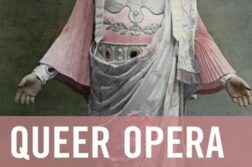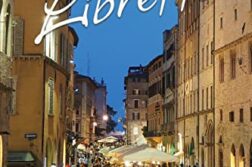Before Night Falls, the memoir by Reinaldo Arenas, gay Cuban novelist and poet, political dissident and prisoner, foe of Castro’s repressive regime, was published posthumously in 1993 to immediate acclaim. I remember the New York Times Book Review front page with a huge color photograph of the author’s handsome face and soulful eyes. Several of my gay friends were reading the book and enthusiastically recommended it to me. One of them finally put a copy in my hands and I read it; instantly drawn in, I too fell in love with Arenas and his story, so engagingly told, so full of adventure, vivid personalities, sex, escapes, suicides, betrayals. I was gushing about it to a friend who said, “Why don’t you turn it into an opera?” Reflexively, I said that was impossible: far too episodic, with way too many characters. How could Before Night Falls possibly be staged?






